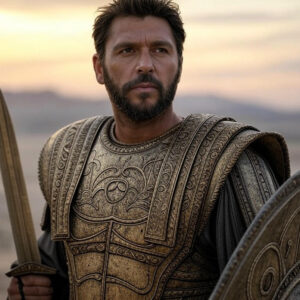In 1797  the German poet Goethe wrote a popular 14-stanza poem that eventually became known as The Sorcerer’s Apprentice. Today it is better remembered as part of Disney’s extravaganza Fantasia. The poem is about an old sorcerer who leaves his cleaning chores to a novice apprentice. After tiring from fetching water with an old pail, the apprentice uses his elementary enchantments to put a broom to work carrying the water. Not realizing what he is doing, all sorts of trouble begin. Soon the floor is flooded with water, and the apprentice realizes he can’t stop the broom from repeating the chores. The apprentice tries splitting the broom in half with an axe, but each new piece becomes another broom that fetches water at twice the speed. When all seems lost, the old sorcerer returns and breaks the foolish apprentice’s spells.
the German poet Goethe wrote a popular 14-stanza poem that eventually became known as The Sorcerer’s Apprentice. Today it is better remembered as part of Disney’s extravaganza Fantasia. The poem is about an old sorcerer who leaves his cleaning chores to a novice apprentice. After tiring from fetching water with an old pail, the apprentice uses his elementary enchantments to put a broom to work carrying the water. Not realizing what he is doing, all sorts of trouble begin. Soon the floor is flooded with water, and the apprentice realizes he can’t stop the broom from repeating the chores. The apprentice tries splitting the broom in half with an axe, but each new piece becomes another broom that fetches water at twice the speed. When all seems lost, the old sorcerer returns and breaks the foolish apprentice’s spells.
It almost seems like Goethe might have used the story of David as the basis for his poem, for just as the young apprentice’s problems went from bad to worse, so David’s sins multiplied until they also became unmanageable.
David remained in Jerusalem while his commander, Joab, held the Ammonite city of Rabbah under siege. Why David stayed behind we do not know, but it would have been far better had he gone “in the spring, at the time when kings go off to war” (2 Samuel 11:1). It was then that David spied “a woman bathing. The woman was very beautiful” (11:2). Her name was Bathsheba. After a brief one-night stand, David likely felt the affair was out of sight and now out of mind. Life returned to normal until David received a memo from Bathsheba with just three words: “I am pregnant” (11:5). The news was devastating. David needed a plan, so he sent word for Bathsheba’s husband, Uriah, to take leave of his battle position at Rabbah. David tried hard to give the appearance that Uriah was the baby’s father. But the harder David tried, the more loyal a soldier Uriah proved to be. He would never allow his personal life to interfere with his current calling as soldier. He could not enjoy himself at home while his fellow soldiers were fighting and dying.
Realizing that nothing was working, David sent word to Joab, “Put Uriah in the front line where the fighting is fiercest. Then withdraw from him so he will be struck down and die” (11:15). Uriah, once David’s most avid supporter, became David’s enemy, while the Ammonites, once David’s enemy, now become his ally. And so the sin multiplied again and again. Uriah became a victim. Joab became an accessory. Bathsheba became a pawn. The dead soldiers became statistics. And the innocent baby Bathsheba carried would die shortly after childbirth!
Is it possible for God’s children to do something as despicable as David? Paul reminds us that “if you think you are standing firm, be careful that you don’t fall!” (1 Corinthians 10:12). David’s fall was swift and unstoppable. Once Satan smells blood in the water, he rallies his efforts to expand the sin so swiftly that it seems impossible for God’s child to reverse his or her course. Then follows the final destruction of a believer! Thankfully, David knew where to look for forgiveness and comfort for his aching soul. Read Psalm 51 to see his confession and redemption.
In Christ’s genealogy in Matthew chapter 1, there are three women listed as ancestors of the Savior. Matthew names the first one as Rahab. The second one is Ruth. However, for the third woman, Matthew simply writes, “David was the father of Solomon, whose mother had been Uriah’s wife” (1:6). Even Matthew couldn’t bring himself to give credence to something that happened years earlier involving one of God’s people who became entangled in a transgression that grew into tragedy.
What can we learn from the convoluted mess that David got himself into?
